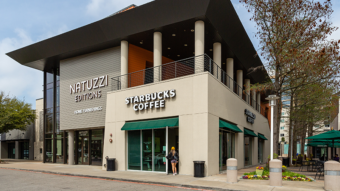There are plenty of empty Barnes & Noble bookstores dotting the Midwest. There are just as many abandoned Borders Books. Don’t expect many of these spots to be filled anytime soon.
There was some hope, at least, that more of these formerly bustling bookstores wouldn’t shut their doors and leave Midwest communities with more retail space to fill. Leonard Riggio, chairman of Barnes & Noble, early this year said that he planned to purchase the company’s 675 bookstores. Retail analysts hoped that this might provide a boost to the flailing bookseller.
But in late August, the chairman announced that he was no longer planning such a move.
These haven’t been great times for Barnes & Noble. As the Web site SNL announced in a recent story, Riggio made his announcement the same day that Barnes & Noble reported an $87 million net loss in the fiscal first quarter of 2013. That’s bad, especially when you consider that Barnes & Noble reported a fiscal first quarter loss of “just” $39.8 million in the first quarter of 2012. At the same time, SNL reports that revenues for Barnes & Noble were down $124 million in the first quarter of this year when compared to the same quarter one year earlier, a dip of 8.5 percent.
What’s really struggling is the company’s digital business. That segment is made up mostly of the company’s NOOK readers and tablets. According to SNL’s story, the NOOK segment saw its revenues fall 20.2 percent in the first quarter when compared to the same period a year earlier. Barnes & Noble had already dropped several of the NOOK tablets in its line — including the NOOK Color — in a move to strengthen this division. But the tablet market is saturated with strong competitors, including Amazon and its Kindle line of readers and tablets. Barnes & Noble’s NOOK tablets never really took off. You can blame a lack of popular apps for much of this. The company has since rectified this with its NOOK HD tablets. But the decision to add Android apps through the Google Play store came much too late to save the struggling tablet line.
So what’s next for Barnes & Noble? It doesn’t look good. In my are of the Chicago suburbs alone, two Borders and one Barnes & Noble stores have closed their doors in the last five years. One of those empty booksellers is still vacant. The other two have been filled, one by a Ross discount clothing store.
What is all but certain is that you can expect more Barnes & Noble stores to close. This will give real estate brokers plenty to do. Fortunately, Midwest brokers have had some luck selling and leasing recently closed bookstores. In the spring of this year, for example, Colliers International sold Borders’ former corporate headquarters in Ann Arbor, Mich., while leasing much of the same company’s former flagship store in Ann Arbor.



